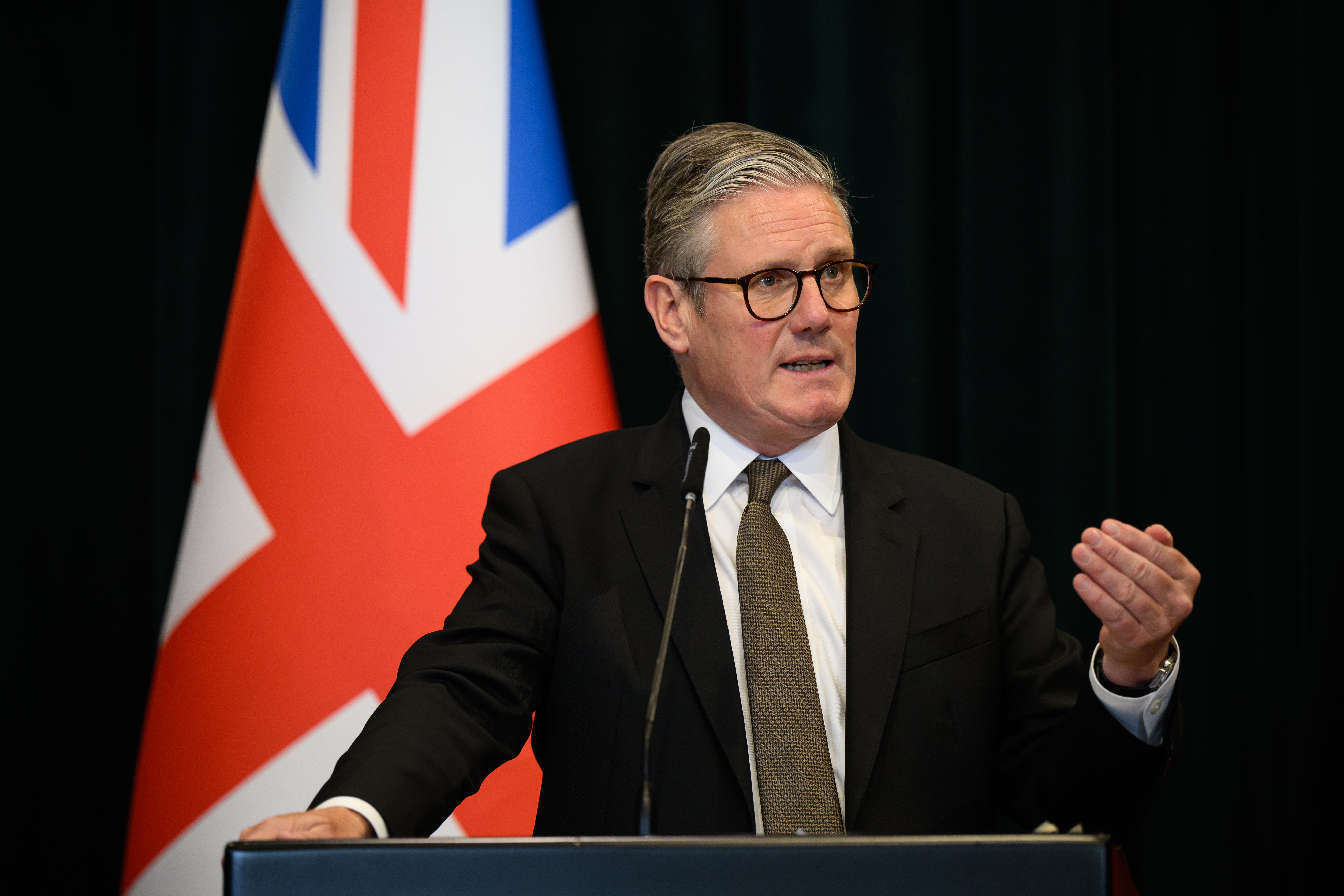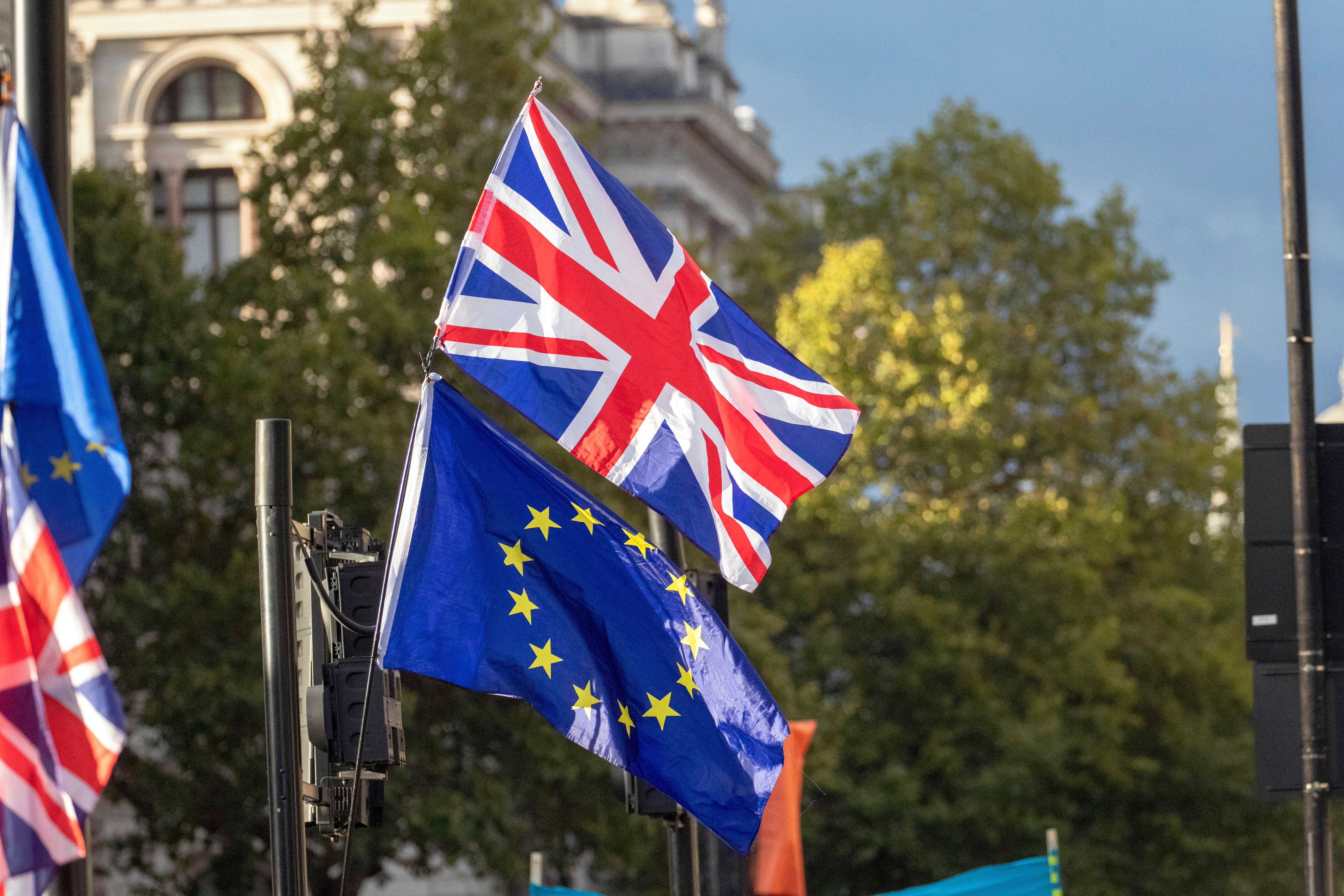The Labour chair of the Commons foreign affairs committee has urged Keir Starmer to be “courageous” in resetting his relationship with Europe to tackle the “suffering” caused by Brexit.
Dame Emily Thornberry, who was a member of the prime minister’s shadow cabinet in opposition, said economic growth had been “severely compromised” by trade barriers created by the UK leaving the EU.
Brexit is on course to cost 4 per cent of Gross Domestic Product a year, according to official statistics from the government’s Office for Budget Responsibility.
The Labour leader is scrambling to avert a crisis facing his much vaunted Brexit reset deal with the EU, due to be unveiled at a summit in London on Monday.
Sir Keir held 11th hour talks with EU boss Ursula von der Leyen and French leader Emmanuel Macron on Friday on the fringes of the European Political Community (EPC) summit in Albania, amid fears an agreement to secure closer ties could be derailed with just days to go.
Officials are in deadlock over issues including a demand from EU states for EU students to pay lower British tuition fee rates for universities, which could cost the UK an estimated £1bn, while President Macron is also leading a charge for demands that EU fishermen can fish in British waters as part of a deal to allow trade barriers to be removed.

But in an interview with the Independent, Ms Thornberry urged the PM to be more ambitious on what the “reset” might include.
She called on Sir Keir to be “courageous” with the deal, adding: “We should be going further than the government currently seems to have the ambition for doing.”
She warned there was a “compelling case… of the amount that the country is suffering as a result of having put trade barriers between Europe and Britain, (which) means that our growth has been severely compromised.”
To tackle the problem and tear down some of the barriers, such as the need to check goods coming into the country meet certain standards, she said ministers should be more relaxed about the issue.
“I would like us to be much more relaxed about goods having the same sort of regulation… if we just agree the same kind of standards, not just for food, but generally, I think that would make life much easier.”

She said while critics of such a move might warn it would make it harder for the UK to strike trade deals with other countries, she remained unconvinced. She said: “Well, maybe, but not necessarily. And the most important trade that we do is with European Union.”
She also called for cuts to the red tape holding the UK back from exporting services, such as architecture skills, to the EU, “given that we’re basically a service economy”. Labour’s manifesto promised to deliver mutual recognition of qualifications obtained abroad, allowing professionals qualified in the UK to practice in the EU and vice versa, without having to requalify and with minimal additional bureaucracy.
She also said when it comes to the City and the finance sector, it is “almost like they’ve given up” and no longer believe the situation can be improved. “We haven’t lost out hugely yet, but I think it’s going to be a slow process. I wish we could do something about that,” she said.
A controversial aspect of the reset negotiations has been a youth mobility scheme, amid fears critics would characterise a capped, time-limited visa for under-30s to live and work in the UK and Europe as a return to freedom of movement.

The summit comes just a week after Sir Keir controversially warned the UK risked becoming an “island of strangers” and unveiled a new migration crackdown as he sought to tackle the threat posed by Nigel Farage and Reform, after the party’s recent local elections success.
Ms Thornberry distanced herself from the PM and said she would not have used the same language. “I wouldn’t have put it that way,” she said. “You know, my English children are a quarter Irish, a quarter Jewish, a quarter Huguenot, a quarter East End white. They’re English. In Hackney, where I’m also the MP for, they speak 86 languages.”
She also said she backed removing students from the migration numbers the government is so desperately trying to reduce. Advocates of the idea have argued that as students are only here temporarily they should not be included in the figures, unless they stay on after their course.
Ms Thornberry said such a move “would just be truthful. Migration is about people who come and live in the UK permanently – if you’re a student, by definition, you don’t.”
And she blamed previous governments, including former Labour governments, for Brexit, saying it was too easy for politicians to blame the EU when things got difficult.
“If only we hadn’t used the European Union as an excuse for our own failure. And I think that it was just an easy thing for politicians to do over a long period of time. If anything didn’t work or was uncomfortable or hard, we would blame the European Union. And we only ever talked about the European Union in negative terms.”
Asked if she was including Labour governments, she said: “Everybody. Everybody did it.”



